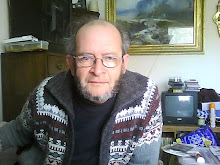The current city of Durham can trace its history back to 995 AD. The city holds the final resting places of Saint Bede and Saint Cuthbert in Durham cathedral and was the most important religious site until St Thomas Becket died. Saint Cuthbert was famous as he had healing powers that could cure any disease, even from death and his body was found to be incorruptible.
Durham is found close to Scotland and played an important part in defending England. Durham castle is the only castle to never have been breeched and the most famous battle was the Battle of Neville's Cross in 1346. Durham suffered more from the abolition of the Church of England then in battles as it was the religious center of the country for many years. Durham relied heavily on the church for economic purposes.
This is a hilly city, and has a bit of a peninsula sue to the presence of the Wear River. The city was supposedly built on seven symbolic hills with the cathedral on the most important and central hill. The most historic area in Durham is the peninsula, which still has regular markets. It also contains Durham castle, administrative buildings for the palatine, the cathedral and the palace green.
Durham cathedral was built in 1093 and is the center of Christian worship. It is a UNESCO world heritage site and is perhaps the best example of a Norman cathedral. The cathedral holds many relics from Saints, which can be viewed by the public. Durham castle is built using the motte and bailey design associated with Norma design. The castle was the stronghold for the Kings representative.
The entire center of Durham is a conservation area and has many interesting sites, including the chorister school, Crook Hall, Elvet Bridge, Kepier Hospital, Durham Castle, Kingsgate Bridge, Framwellgate Bridge, Durham Cathedral, St John's College chapel, Church of St Mary-le-Bow, Prebends bridge, Church of St Margaret of Antioch and St Giles Church.
Hotels in Durham
Article Source: http://EzineArticles.com/?expert=Simon_Haughtone
Subscribe to:
Post Comments (Atom)












No comments:
Post a Comment